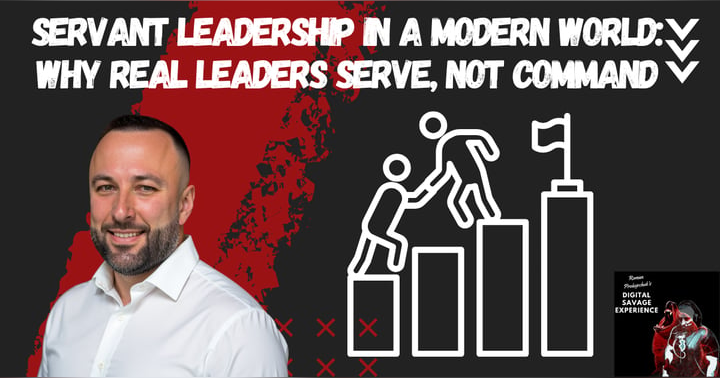
The Power of Reaction: Navigating Life with Logical Evaluation Over Emotional Impulse
Life is an unpredictable journey filled with a tapestry of experiences—some joyous, others challenging. While we cannot always control the events that unfold, we hold immense power in how we choose to react to them. It is often said that life is 10% what happens to us and 90% how we respond. This perspective underscores the profound impact our reactions have on our overall well-being and the course of our lives. By cultivating an even-framed mindset and prioritizing logical evaluation over emotional impulsivity, we can navigate life's hurdles more effectively and prevent negative experiences from escalating.
The Primacy of Reaction Over Circumstance
Every individual encounters setbacks, disappointments, and unexpected changes. These events, in themselves, are neutral occurrences devoid of inherent meaning until we assign one through our reactions. Two people might face the same challenge—say, losing a job—but their responses can lead them down vastly different paths. One might view it as a devastating blow, succumbing to despair, while the other sees an opportunity for growth or a chance to pursue a long-held passion.
Our reactions serve as a lens through which we interpret events. By acknowledging that we have control over this lens, we empower ourselves to shape our reality constructively, rather than being at the mercy of external circumstances.
Emotional Responses Versus Logical Evaluation
Emotions are a natural and essential part of the human experience. They provide valuable information about our needs and desires. However, when emotions drive our immediate reactions, especially in negative situations, they can cloud our judgment and exacerbate problems.
A negative emotionally driven reaction can:
Amplify Stress: Reacting with anger or panic can intensify stress levels, affecting mental and physical health.
Impair Decision-Making: Emotions can hinder our ability to think clearly, leading to rash decisions that may worsen the situation.
Affect Relationships: Overly emotional responses can strain relationships, causing misunderstandings and conflicts.
In contrast, evaluating situations logically allows for a more measured and effective response. It enables us to assess the facts, consider the consequences, and choose actions that align with our long-term goals and values.
Strategies for Maintaining an Even Frame of Mind
Developing the ability to respond logically rather than react emotionally is a skill that can be cultivated with practice and mindfulness. Here are some strategies to help maintain an even-framed mindset:
1. Mindfulness and Self-Awareness
Practicing mindfulness helps increase awareness of our thoughts and feelings without immediately acting on them. Techniques include:
Meditation: Regular meditation can enhance emotional regulation.
Deep Breathing Exercises: Helps calm the nervous system during stressful moments.
Journaling: Writing down feelings can provide clarity and prevent impulsive reactions.
2. Pause Before Reacting
Implementing a deliberate pause allows time for emotions to settle and for logical thinking to kick in. This can be as simple as:
Counting to Ten: A classic technique to prevent knee-jerk reactions.
Taking a Short Walk: Physical movement can help process emotions.
3. Cognitive Reframing
This involves consciously changing the way you perceive a situation:
Identify Negative Thoughts: Acknowledge unhelpful thought patterns.
Challenge Assumptions: Question the validity of negative interpretations.
Focus on Solutions: Shift attention from problems to possible solutions.
4. Seek Perspective
Sometimes, discussing the situation with a trusted friend or mentor can provide new insights and reduce emotional intensity.
5. Practice Empathy
Considering others' perspectives can decrease emotional reactions and promote understanding, especially in conflicts.
The Ripple Effect of Our Reactions
Our reactions do not occur in a vacuum—they affect those around us and can set off a chain of events. A calm and measured response can diffuse tension, foster cooperation, and lead to positive outcomes. Conversely, negative reactions can escalate conflicts and create additional problems.
By managing our reactions, we also model effective coping strategies for others, contributing to a more positive and resilient community.
Embracing Logical Evaluation for a Balanced Life
Choosing to evaluate situations logically rather than reacting emotionally is not about suppressing feelings but about integrating them with reason. It is about recognizing our emotions, understanding their origins, and deciding the best course of action.
This approach leads to:
Improved Relationships: Communication becomes clearer and more constructive.
Better Decision-Making: Choices are aligned with long-term objectives.
Enhanced Well-Being: Reduces stress and promotes a sense of control.
In embracing this mindset, we acknowledge that while we cannot dictate every event in our lives, we hold the reins to our responses. This realization is empowering and is a cornerstone for personal growth and fulfillment.
Life is less about the inevitable ups and downs we face and more about how we interpret and respond to them. By cultivating an even-framed approach and prioritizing logical evaluation over emotional reactions, we not only prevent negative experiences from worsening but also transform challenges into opportunities for growth. This shift in perspective can lead to a more balanced, peaceful, and fulfilling life.




















